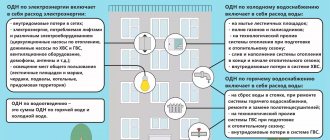- How to declare yourself bankrupt for housing and communal services
- How to pay for utilities correctly
- What to do with housing and communal services debts if the court declares you bankrupt
- How to file an application for insolvency of a citizen due to debts for housing and communal services
- Advantages of contacting Legal Bureau No. 1
Declaring a citizen bankrupt has become possible since October 2015. The mechanism for carrying out the procedure is determined by federal law (Federal Law No. 127), according to which the decision on financial insolvency is made by the court. Writing off debts in bankruptcy for utility bills is not an automatic decision made on the basis of a court order.
In this case, it is necessary to actively interact with the utility provider (ICU), which is the resource supplying organization.
How to declare yourself bankrupt for housing and communal services
The state provides for complete write-off of debts upon the death of the property owner or complete disability. As for writing off utility bills in the event of a citizen’s bankruptcy, this is only possible if he submits to the HOA (or other similar organization) a well-written application for recalculation with a copy of the court decision to write off debts.
IMPORTANT! Bankruptcy for housing and communal services is not described by a separate law and, therefore, is subject to the same requirements according to which an individual is declared insolvent in the general manner. If the owner (tenant) of an apartment has a debt to the housing and communal services of more than 500 thousand rubles and a debt of more than three months, then there are grounds to file a lawsuit to declare oneself bankrupt.
The court does not recognize the application as justified unless there are compelling reasons for the debt to arise. Simply put, if during the period of debt formation the individual and family members had a stable income, then the likelihood of accepting a bankruptcy case is significantly reduced.
Declaring the partnership insolvent
The Insolvency Law (Article 33) provides for certain conditions under which bankruptcy proceedings can be carried out against a legal entity:
- the debt of the homeowners association is at least 400 thousand rubles;
- failure to fulfill creditor claims within three months.
In the case of HOAs, the procedure is most often introduced for the following reasons:
- Fraudulent actions on the part of the chairman. Since HOA debts most often arise to resource supply companies, the cause of bankruptcy may be a delay in payment for services under the contract. Apartment owners can pay bills in good faith, but the organization itself can direct them not to pay for electricity, gas and water, but for other purposes, most often not related to home maintenance.
- Debt for housing and communal services of apartment owners. If a large percentage of residents do not pay for services, then the partnership will have to answer for this.
The HOA is a non-profit organization, and, therefore, it does not have any profit that could be used to pay off debts for unscrupulous owners. That is why governing bodies often take quite stringent measures to collect debts from residents. Indeed, in case of non-payment, the partnership may be liquidated and declared bankrupt.
Attention! Only an arbitration court can declare a legal entity insolvent after all the necessary stages have been completed.
It should be noted that the introduction of a procedure in relation to an HOA may not ultimately lead to its closure. In this case, the HOA will not receive “bankrupt” status.
This may happen if the partnership enters into a settlement agreement with the creditor or is able to pay debts in full and restore solvency during the initial stages of the lawsuit.
From individual publications of our experts, you will learn about the pros and cons of HOAs, as well as what issues are considered at the general meeting of the partnership, how voting takes place in person and in absentia, and how to correctly draw up a protocol on the results.
How to pay for utilities correctly
Current utility bills are calculated regularly, regardless of the financial situation of the owner (tenant) of the property. During the period of bankruptcy proceedings (and it can last quite a long time, up to a year), the debt will grow due to current accruals (penalties and fines are not calculated during this period).
Until a court decision, no one has the right to release a citizen from fulfilling his obligations. To settle the amount of housing and communal services debts in bankruptcy, you must:
- make an appointment with your boss;
- write an application requesting to write off the debt, including fines and penalties;
- offer to draw up a payment schedule for current services with a fixed amount or on other acceptable terms.
These actions are of great importance for maintaining normal living conditions, since management companies have the ability to shut off water and sewerage, as well as the supply of electricity. At the same time, no one will understand bankruptcy litigation until a court ruling on debt relief has been issued.
No matter how the circumstances develop, it is necessary to make contact with representatives of the organization providing housing and communal services. Make account reconciliations, visit the cash desk of the payment center if you find errors in the receipt after concluding an agreement to pay the current debt!
IMPORTANT! The debt of an individual can only be relevant for the last three years, if the resource supplying organization did not send notifications about the amount of debt with a statute of limitations period of more than three years, and also if the citizen did not sign reconciliation acts. This fact must be kept in mind, although in practice such cases are rarely recorded. Management companies regularly send registered letters with demands to repay the debt, enclosing a breakdown of the debt by month.
Thus, before making any decisions in favor of the debtor, HOA employees will conduct a thorough analysis of business correspondence and interactions with a citizen on debt issues. The only thing you shouldn't think about is whether utility debts are discharged in bankruptcy. It is important to remember that ongoing obligations will always exist and paying for the services consumed is the responsibility of every citizen.
Reasons for bankruptcy of HOAs
The reasons for bankruptcy of an HOA may be:
- embezzlement of funds;
- inefficient use of common property;
- debts to resource suppliers and/or contractors;
- unwise financial policy.
Despite the transition to direct payments between residents and resource suppliers, the HOA remains an intermediary between residents and suppliers of a number of services and repair work performers, so delays in rent payments by residents lead to an increase in accounts payable to resource suppliers and counterparties in transactions. In addition, many HOAs have debts to credit institutions.
Housing associations in buildings where a large number of bad debtors live for housing and communal services are forced to use their existing property as efficiently as possible to pay off current debts, otherwise the risks of bankruptcy increase.
What to do with housing and communal services debts if the court declares you bankrupt
As soon as you receive a ruling from the arbitration court recognizing your bankruptcy application as justified, introducing a bankruptcy procedure and approving an arbitration manager, draw up an application addressed to the director of the management company in two copies. Next, you need to make an appointment with the head (director) of the management company to agree on the issue of writing off housing and communal services debts in bankruptcy. Be sure to take a copy of the court ruling, passport, and available information on debt calculations.
Explain the essence of the legislation providing for the repayment of debt on the basis of an application for inclusion of the management company in the register of creditors. The result of your communication should be to inform the management company about the introduction of bankruptcy proceedings, which leads to the suspension of the accrual of interest, penalties and fines, as well as existing enforcement proceedings and the need for the management company to be included in the register of creditors' claims.
Pay for current services at the cash desk of your housing and communal services organization to avoid mistakes. Be sure to save all payment receipts for the new billing period! After completing the bankruptcy procedure, receive a document from the court about writing off debts to housing and communal services, take it to the settlement center. The debt is written off completely.
IMPORTANT! If the management company refuses to write off the debt, contact an experienced lawyer with practical experience in this area. This is necessary for a quick settlement of such an important issue as utility debt. Despite the fact that representatives of the resource supply company must strictly comply with court decisions, in practice conflict situations often arise that worsen the citizen’s living conditions and lead to a further (unreasonable) increase in debt.
According to judicial practice, if in a bankruptcy case there are no grounds for applying paragraphs 4-6 of Art. 213.28 of Law N 127-FZ, the management company is obliged to write off the debt for housing and communal services from a citizen declared bankrupt. Paragraphs 4-6 of the above articles regulate the actions of the court when signs of fictitious bankruptcy are detected, which is an administrative and criminal offense.
A citizen is not declared bankrupt if he has submitted knowingly false information to the financial manager related to financial security, level of income and other circumstances determining his solvency.
Consequences for apartment owners
If it is not possible to restore the financial stability of the housing association, it is declared bankrupt, and the property of the HOA is sold in order to repay the claims of creditors. In this case, residents will have to determine the further method of managing an apartment building - creating a new HOA, choosing a management company, or managing the house on their own without creating a legal entity (for houses with up to 50 apartments).
It is important to take into account that the property of the HOA, which is necessary for the normal functioning of the organization servicing the house, is not subject to alienation to pay off debts.
Residents' obligations to the HOA can be sold during bankruptcy proceedings as doubtful accounts receivable, while debts for utilities and home maintenance and repair work are transferred to a new organization chosen by the residents to manage the house.
If the owners of the premises decide to create a new HOA, then it must be taken into account that its board and audit commission cannot include former board members of the liquidated partnership.
How to file an application for insolvency of a citizen due to debts for housing and communal services
The arbitration court is the only body that considers bankruptcy cases. The application is submitted at the place of registration of the debtor. Both the debtor and the creditor have the right to submit the document. The application on behalf of the first indicates: the amount of debt, information about the property owned, an explanation of the reasons why the debt arose.
The debtor (if he submits an application) must also take an extract from the Unified State Register of Individual Entrepreneurs to confirm the presence or absence of status as an individual entrepreneur. These documents are submitted five days before the application is sent to the arbitration court.
Features of HOA liquidation
Previously, there was no bankruptcy procedure for HOAs as such, since the organization was one of the structures that were not subject to the bankruptcy law. Despite changes in legislation, there is NO special procedure for bankruptcy of a homeowners association , so in this situation it is necessary to be guided by the following elements of the regulatory framework:
- Bankruptcy Law;
- Civil Code of the Russian Federation.
Advantages of contacting Legal Bureau No. 1
We employ competent specialists who know how to act competently in the current circumstances. Other important points:
- each request, regardless of the client’s status, is considered in detail;
- documentation is collected promptly;
- the debtor's prospects are assessed objectively.
Are you unable to repay your debts to creditors? Contact Legal Bureau No. 1 immediately! We will help you avoid debt bondage and provide assistance in resolving the most difficult issues.
Responsibility of the chairman of the partnership
A homeowners' association is equated to a legal entity, therefore, the responsibility of the chairman of the HOA in the event of bankruptcy of the HOA is, first of all, to check by special bodies the activities of the organization for deliberate bankruptcy. If signs of such a violation of the law are detected, the chairman may be brought to administrative or criminal liability.
If no signs of deliberate bankruptcy are detected, the chairman will not be held liable - the debt will be repaid from the property of the partnership. At the same time, members of the HOA have the right to file a complaint against the chairman if his activities are seen as a violation of the law.
The nuances of liquidating a partnership
If the HOA does not pay off its debt during the bankruptcy procedure, it will be liquidated. However, insolvency is not the only basis for terminating its activities.
An association of owners may terminate its work for the following reasons:
- liquidation of the HOA by court decision;
- termination of the partnership's activities at the initiative of the residents.
Closing by court order occurs on the initiative of supervisory authorities that have identified any violations.
An organization may terminate its activities voluntarily if the corresponding decision was made by its founders - the owners of premises in the apartment building. This issue is raised at the general meeting by the chairman, members of the board or one of the participants of the partnership. The process of discussing the proposal and the voting results are reflected in the minutes.
A sample protocol on the liquidation of an HOA may look like this.
The liquidation commission created at the same meeting is obliged to submit documents to the registration authority and notify the Federal Tax Service. After this, counterparties and creditors are informed about the liquidation.
Declaring the HOA bankrupt
As in the case of legal entities, the bankruptcy procedure of an HOA takes place in several stages:
- observation;
- financial recovery;
- external management;
- bankruptcy proceedings.
In relation to homeowners' associations, as practice shows, the first stage is applied - observation. The appointed temporary manager assesses the amount of the HOA's debt, its assets, draws up a register of creditors to whom the organization has a debt, and then immediately follows the procedure for liquidating the HOA, seizing the property and selling it at auction to pay debts to creditors (bankruptcy proceedings).
Restrictions on rights during bankruptcy
Here the difficulties arise in the following:
- During the procedure, access to all monetary transactions on accounts and cards is blocked, all bank cards will be under the control of the financial manager;
- an individual no longer disposes of his property without the approval of the manager: it is impossible to sell a house or buy a car while in bankruptcy;
- All transactions of alienation and donation of property in favor of relatives are prohibited;
- the bankrupt is obliged to transfer all bank cards, passwords from “Personal Accounts” of online banks and electronic accounts to the arbitration manager;
- travel abroad is prohibited at the discretion of the court.
Who is a member of the SNT
07.07.2021
Membership dues funds go towards salaries of the partnership’s employees, payment for general utilities, for example, lighting on the territory of the partnership (it does not take into account whether there is lighting on the SNT member’s property), and for operating expenses. The size of the membership fee depends on the number of plots occupied. The size of the share contribution is equal to the amount of 5 membership fees.
What is SNT? The abbreviation is deciphered as follows: “horticultural non-profit partnership.” In simpler terms, SNT are voluntary associations of gardeners, created so that people can jointly resolve all issues relating to their land plots, and thereby make their gardening activities easier and simpler.
In other words, these partnerships are needed to manage the land legally. Members of gardening partnerships can plant trees on their plots, plant vegetable gardens, and engage in any economic activity, if it does not violate the charter adopted by the partnership.
In addition, it is allowed to build a house in SNT and all kinds of outbuildings. There are many people who live temporarily (for example, in the summer) or permanently in their garden plots, and the houses they build look good and are quite livable.
You can even register in them, but for this, both the house and the plot must be registered as private property, and the house must be recognized as suitable for habitation.
Do new dacha owners automatically become members of SNT?
The deadlines for paying contributions and taxes must be clearly stated in the charter of your SNT, you can familiarize yourself with it as soon as you wish. Payment of membership, target, additional contributions, tax and other fees is the responsibility of the member of the dacha partnership.
People running gardens individually are required to pay a fee for the use of the general infrastructure of the gardening partnership on the basis of agreements concluded with the board. The procedure for concluding such agreements is also determined by the SNT charter.
We recommend reading: Sample statement to the police about insult
1. I was a member of SNT, entered into an agreement, but did not write an application to leave SNT. Does my daughter automatically become a member of the gardening partnership? 2. Does my daughter have any tax benefits if she is a young pensioner? 3. Should she pay dues and taxes now? We usually paid them in May.
4. Should she separately pay for garbage removal and road repairs or does money from membership fees go towards these purposes?
A deceased member of the SNT will be considered a member until the board receives a death certificate of the SNT member. It is enough to simply show the document to a relative so that the secretary can make a mark on the list of SNT members. In this case, the general meeting does not need to expel a member of the SNT due to death.
The basis for such a simple solution to the issue of exclusion is the norm of Article 17 of the Civil Code of the Russian Federation (see below).
And the peculiarity of this case is that an official document (a copy of the death certificate or, at least, details of such a certificate) must be attached to the exclusion mark, because the neighbor’s words cannot be attached to the protocol.
“Is it possible not to accept a harmful gardener as a member of SNT ?” - a question may arise. The meeting, of course, can make any decision. But a harmful gardener has the right to go to court for such disrespect for his precious person.
In the claim, he will indicate that he wants to join SNT, has undertaken to pay fees, fulfill the requirements of the company’s charter, is the owner of a land plot, etc. (see sample application for membership in SNT). Finally, referring to Articles 18 and 46 of Law No. 66-FZ, he will demand that SNT be obliged to accept him as a member of SNT.
Believe me, he will win the trial, and the right to be a member of the SNT will be restored. The court will not take personal likes and dislikes into account. This is all poetry, not legal norms.
We recommend reading: Where to get a certificate of actual residence
Membership in SNT: procedure for obtaining membership, who can be a member
It is also necessary to say what the land included in the gardening partnership is, and what specific areas may be included there. The whole point is that each partnership can be divided into several categories, taking into account the property that is their property. In this case, we mean areas that are used by SNT members.
Important! Since SNT is a legal entity, it must have a complete set of statutory documentation. For example, the charter of the partnership itself and tax certificates. The charter reflects the process of transferring plots of land to owners, as well as the conditions for their operation.
SNT No. 5 - OJSC gas
2. Expulsion of old members from SNT. Now that we have dealt with the new members of the SNT, let’s take a closer look at the old ones. You don’t have to look far for examples. The land plot went to my wife under a gift agreement duly registered with a notary.
On this basis, the wife submitted documents to the department of Rosnedvizhimost in the Nizhny Novgorod region and received a certificate of ownership of the plot. We have already figured out above that until she has submitted an application to become a member of SNT, until the general meeting has accepted her as a member, she is not one. Everything is clear here.
Membership in a public organization cannot be inherited from one member to another.
Despite the apparent simplicity and unambiguous understanding of this issue by all gardeners: members of SNT and non-members (carrying out individual gardening activities), the concept of membership in a gardening non-profit association of citizens requires a more in-depth analysis.
Who is a member of the SNT Link to main publication
How long does the bankruptcy process take?
After all the necessary documents have been collected and submitted to the court, and the state duty and remuneration for the manager have been paid, the court considers the documents, recognizes the decision as justified, and appoints a financial manager. The bankruptcy procedure itself begins with the sale of property and the distribution of funds to creditors. On average, bankruptcy lasts about 6–8 months. However, the procedure may take longer if:
- the borrower has expensive property that can take quite a long time to be sold through auction;
- there are controversial transactions that the financial manager decides to check;
- a court decision is being challenged.
Sometimes bankruptcy lasts 1-2 years.
The essence of restructuring
Restructuring makes it possible to restore payment discipline and pay off debts on fairly favorable terms. But for this, the borrower must have the opportunity: a good official income, which is enough to return to the previous payment schedule for 3 years. At the same time, there should be money left “for the life” of the family. Therefore, in practice, the restructuring procedure is rarely used. In addition, when considering this option, one must take into account the serious restrictions that are imposed on the daily life of a citizen:
- The borrower will be prohibited from making transactions worth more than 50 thousand rubles. without the consent of the financial manager.
- Lenders will receive information about the availability of valuable property and transactions with it in recent years.
- Within 5 years after completion of the procedure, it will be necessary to notify the new creditor about the completion of the debt restructuring procedure.
- The maximum restructuring period is 36 months.
If your debt is held by the EOS agency, then perhaps cooperation with the company will be more profitable than restructuring on such terms.
What to do with overdue loans
Of course, each case is individual. A citizen, when starting a bankruptcy procedure, must take into account all the risks that he will incur. Be careful and honest. By resorting to the bankruptcy procedure, instead of the expected “quick debt write-off,” you can get a number of painful prohibitions and restrictions and lose all your property. Yes, bankruptcy is an opportunity to legally write off debts through the court, however, as you can see, this is not the most pleasant procedure, which also has many pitfalls. Moreover, this is not the only option to get rid of your debt burden. Often, for citizens who find themselves in a difficult situation when their income has sharply decreased, it is much more profitable and easier to start cooperating with a collection agency and continue their activities, gradually paying off the debt. Professional agencies can offer you even more favorable repayment terms than banks; they will help you return to your payment schedule and cope with accumulated obligations, no matter how hopeless the situation may seem.
Consequences of bankruptcy for property owners
After the termination of the service organization's activities, the owners will again have to choose a form of management. They have the right to choose, for example, a management company and even re-create a partnership.
The legislation does not establish any temporary or procedural specifics for establishing an association. An exception may be a situation where the registration of a new HOA is prohibited by the court due to the fact that the debt of the residents to the partnership led to bankruptcy.
It is important to note that all consequences for owners are only procedural in nature.
Dangerous advice from unscrupulous lawyers
A person who decides to go bankrupt usually turns to the appropriate company. Where do unscrupulous lawyers suggest starting the case? First of all, they advise preparing for bankruptcy, namely, formally getting rid of all movable and immovable property, except for the only home, since all this is subject to sale at auction. But they often do not inform the client that, according to the Federal Law “On Bankruptcy”, articles of the Criminal Code of the Russian Federation 195 “Illegal actions in bankruptcy” and 196 “Intentional bankruptcy”, he may become the subject of a crime. If law enforcement agencies establish that a citizen, before filing an application, intentionally sold property in order to hide it from creditors, a criminal case will be initiated against him. Also, persons who, having large debts and hiding real income, deliberately created the conditions for filing a bankruptcy petition in court, may be brought to criminal liability. Bankruptcy is not such a simple process, it is better to think several times before starting it. Our company employs competent specialists who will help you deal with difficulties.











